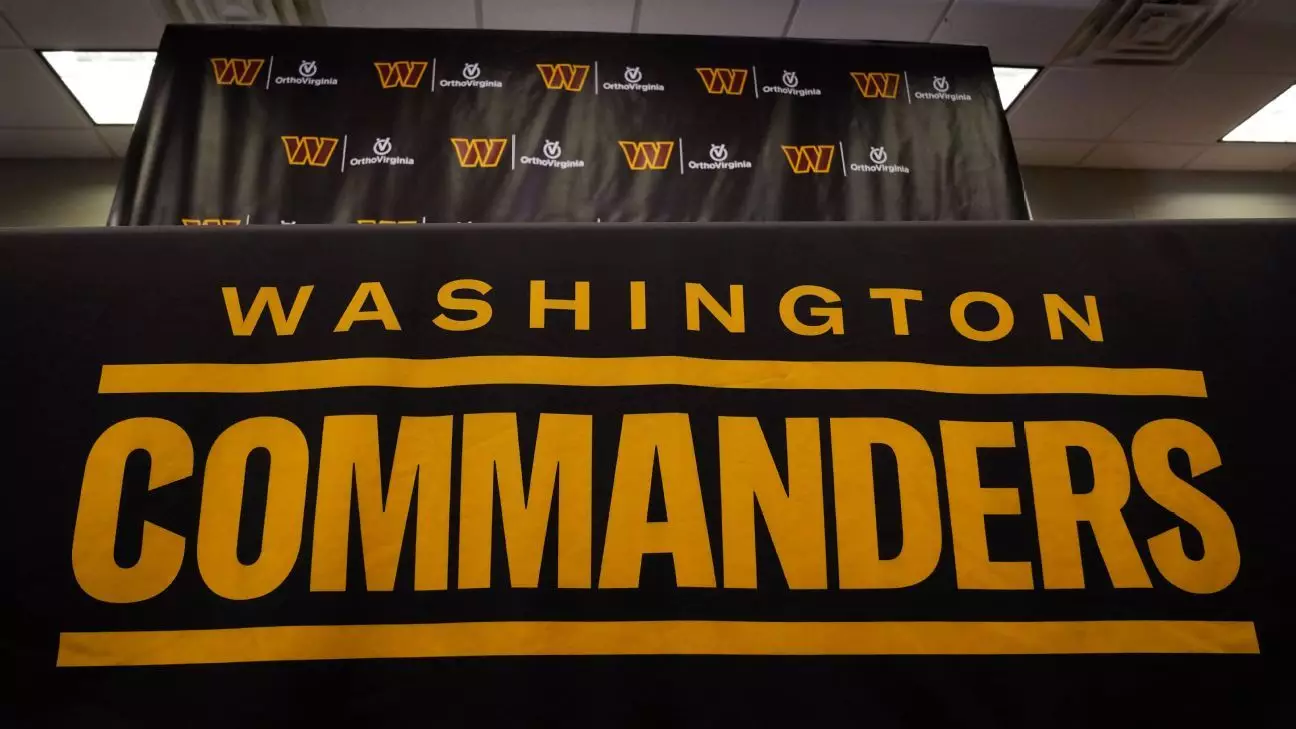The Washington Commanders, once a cornerstone of football history in the nation’s capital, face an uncertain path in their pursuit of returning to their storied roots at RFK Stadium. Recent legislative moves have intensified discussions about their return, yet the absence of a crucial land provision in a spending bill has cast shadows over these aspirations. As the Commanders grapple with their place in D.C., the broader implications of their potential return demand a closer inspection.
Early this week, hopes soared among fans and officials alike as discussions of the Commanders potentially returning to the RFK site gained momentum. However, the landscape shifted dramatically when Congress excluded the proposal to transfer approximately 170 acres of federal land to D.C. from the new government funding bill. This initial removal has left many questioning the viability of the Commanders’ move back to RFK.
The land, which has been synonymous with the team’s legacy, represents not just a physical space but an emotional connection for generations of fans. With the exclusion of this key provision, the likelihood of the Commanders reviving their historical ties to this location appears increasingly frail. The current lease on the land, which extends for 14 more years, suffers from a lack of financial backing that would allow for significant development, especially if the Commanders remain at their current site in Landover, Maryland.
In the wake of the exclusion of the land transfer from the legislation, misinformation has run rampant. D.C. Mayor Muriel Bowser took the opportunity to clarify misleading remarks by influential figures, including Elon Musk. Musk’s statement suggesting a sizable federal allocation for the stadium fueled misconceptions among the public. Bowser emphasized that the spending draft included no funds for a new stadium, instead focusing on combating blight in the area surrounding RFK.
The confusion illustrates a broader challenge in public discourse regarding governmental spending and infrastructure projects. Without clear communication from both officials and media, citizens may form opinions based on erroneous information, further complicating the narrative surrounding the Commanders’ future.
As the dust settles from the recent legislative turbulence, the Commanders find themselves at a crossroads. With the continued possibility of constructing a new stadium in Landover — where they currently play — the organization has options to consider. They already own land in Maryland, which may serve as a pathway to developing new facilities without the need to navigate the complexities of D.C. politics and land transfers.
Governor Wes Moore has expressed a desire to keep the team in Maryland, raising the stakes for the Commanders. This could lead to negotiations that could sway team ownership’s ultimate decision. The prospect of a stadium by 2030, as expressed by Commanders’ owner Josh Harris, may further serve as a deadline that could drive strategic planning regardless of whether the current proposals materialize.
The past plays a vital role in shaping the fanbase’s hopes for the Commanders. Memories of RFK Stadium, where the team rested in glory from 1961 to 1996, remain vivid among long-time supporters. In its heyday, the stadium was not only a venue for sporting events but a cultural landmark that formulated the identity of the Washington sports community.
Yet, the RFK site now stands as a neglected relic, further complicating the narrative surrounding its use. “Surrounded by asphalt and a stadium that hasn’t been used in ten years,” Bowser pointed out, the site symbolizes both an opportunity and a challenge for the city as it pushes for revitalization efforts. Any discussion of a new stadium must consider not just the benefits to the team and its fans but also the wider implications for urban development and community engagement.
The path toward revitalizing the Washington Commanders’ presence in D.C. is fraught with obstacles. The recent legislative setback may just be one of many hurdles the team will need to navigate. The Commanders must weigh their options carefully, balancing nostalgic aspirations with practical considerations regarding finances and land use.
As stakeholders continue to engage in discussions, the fate of the Commanders and their potential return to RFK remains uncertain. Nonetheless, for the legion of fans who cherish the team’s history, hope persists—hope that one day, the iconic sound of cheering and excitement will resonate once more from the stands of RFK as the Commanders reclaim their home.

